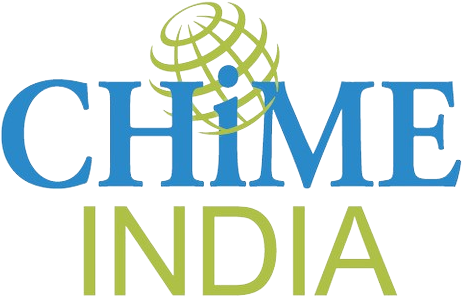Written by : Nikita Saha
January 1, 2024

As we reflect on the events of the year, it's evident that technology has played a pivotal role in the flourishing landscape of healthcare. The adoption of various AI and ML technologies has particularly assisted doctors in providing precision care.
Among these advancements, Genomics stands out as a widely accepted tool in the realm of precision care. Before we delve into the growing relevance of genomics, let's take a moment to understand the basics of what genomics is and how it contributes to the evolving healthcare landscape.
At its core, genomics is the study of an organism's entire genetic material, encompassing the DNA sequences that define its characteristics. However, genomics goes beyond genetics. It offers a holistic understanding of how genes interact and function collectively. This comprehensive approach is instrumental in unravelling the genetic basis of diseases, enabling more precise diagnoses and tailored treatment strategies.
The era of one-size-fits-all medicine is gradually giving way to personalised healthcare, and genomics is at the forefront of this revolution. By analysing an individual's genetic code, healthcare providers can customise treatment plans, predict disease risks, and optimise therapeutic outcomes. This shift towards precision medicine not only enhances efficacy but also minimises adverse effects, marking a paradigm shift in patient care.
In efforts to do so, the University of Illinois, Urbana-Champaign (UIUC) in alliance with Genome International, USA sought to forge healthcare partnerships in Tamil Nadu for the integration of AI and genomics in healthcare. The ultimate goal is to establish AI, ML, clinical genomics and precision medicine as the new healthcare standards.
Genomics is proving to be a game-changer in the treatment of chronic and rare diseases. The identification of genetic markers associated with these conditions facilitates early diagnosis and targeted interventions. Moreover, precision medicine, driven by genomic insights, offers new hope for patients grappling with conditions that were once considered medically challenging or untreatable.
In August, Illumina Inc, a US-based company specialising in DNA sequencing and array-based technologies, in a move to expand its presence in India set up a new solutions centre to drive genomics advancements. This initiative seeks to expand the country’s genomics capabilities along with the detection and diagnosis of chronic diseases.
While in another case, Haystack Analytics, a genomics-based diagnostics solution incubated at IIT-Bombay, partnered with The LabExpert, a Mumbai-based diagnostic laboratory, to unveil 'infexn’ a genomic infectious disease test in Mumbai.
The test is designed to detect various bacteria and fungi while simultaneously identifying major antimicrobial resistance genes. This capability empowers healthcare professionals to adopt evidence-based diagnostic approaches, a significant stride in combating infectious diseases effectively.
Beyond personalised care, genomics has the potential to impact population health on a broader scale. Large-scale genomic projects and biobanks are providing valuable insights into the genetic variations within populations. This information is essential in devising public health strategies, identifying risk factors, and implementing preventive measures to address the unique healthcare needs of diverse communities.
Owing to this, K’taka unveiled a revised biotech policy to lead global clinical trials and genomics innovation. The state's renewed biotech policy aims to position Karnataka as the next global hub for clinical trials and a leader in genomics. Notably, the policy highlights an advanced genome editing technique known as "crack-in-creation," garnering international attention for its biological breakthrough.
Similarly, many other initiatives took place to boost genomics research. For instance, the Hyderabad-based Centre for Cellular and Molecular Biology (CCMB), a research institution specialising in modern molecular biology and population-scale genomics, collaborated with Amazon Web Services (AWS) to boost its genomics research projects. CCMB's engagement with AWS extends to studying breast cancer samples, aiming to identify molecular fingerprints of triple-negative breast cancers in the Indian population.
Genomics has been a focal point for important advancements, and this year marked notable progress in the field. Some studies were dedicated to genomics, while others teamed up with different disciplines to explore and understand genomics better.
Let's take a look at some key developments in 2023 that put genomics in the spotlight.
Wockhardt Hospitals Venturing into Genomics
Wockhardt Hospital Mumbai Central collaborated with HaystackAnalytics, a genomics healthtech startup incubated at IIT Bombay, to venture into precision genomics using whole exome sequencing. The alliance with HaystackAnalytics enables Wockhardt Hospital - Mumbai Central to harness the genomic potential to enhance patient care and improve health outcomes.
AstraZeneca’s $840 Mn Deal with Verge Genomics
British-Swedish pharmaceutical major, AstraZeneca, has formed a partnership between its rare disease unit, Alexion, with American biotechnology firm Verge Genomics. The partnership deal is reported to be valued at over $840 million.
Verge Genomics which is a biotechnology firm uses AI and human genomics to accelerate drug discovery for rare neurodegenerative and neuromuscular diseases. Unlike conventional methods of starting with cell or animal models, Verge's platform is said to use a library of genomic datasets sourced directly from human tissue combined with a human-centred biology platform. This approach is expected to rapidly advance new data insights into clinical candidates.
Redcliffe’s Initiative to Boost Genomics Research in India
Redcliffe Lab partners with Rajiv Gandhi Centre for Biotechnology (RGCB) to boost research in India. This partnership aims to introduce advanced genomics technologies to the southern part of India, making these resources more accessible and efficient. Technologies such as 10X Chromium, Illumina Novaseq, Nanopore Gridion, and other associated infrastructures are expected to be incorporated, streamlining the processing and analysis of genetic samples.
India, with its vast and diverse population, stands at the cusp of a genomics revolution. The integration of genomics into the country's healthcare system holds the promise of addressing public health challenges, improving disease management, and enhancing the overall well-being of its citizens. As the cost of genomic sequencing continues to decline, accessibility to these advanced diagnostics and treatments is poised to increase, fostering a more equitable healthcare landscape.
To conclude, genomics is not merely deciphering the genetic code; it is unlocking a new era of healthcare tailored to individual needs. From personalised treatment strategies for chronic and rare diseases to their potential impact on population health, genomics is steering the course of medicine towards a future where healthcare is as unique as our DNA. As we peer into the future, the role of genomics in shaping the health and well-being of nations, including India, holds immense promise and potential.
The College of Healthcare Information Management Executives (CHIME) is an executive organization dedicated to serving senior digital health leaders. CHIME includes more than 5,000 members in 56 countries and two US territories and partners with over 150 healthcare IT businesses and professional services firms. CHIME enables its members and business partners to collaborate, exchange ideas, develop professionally and advocate the effective use of information management to improve the health and care throughout the communities they serve. CHIME's members are chief information officers (CIOs), chief medical information officers (CMIOs), chief nursing information officers (CNIOs), chief innovation officers (CIOs), chief digital officers (CDOs), and other senior healthcare leaders. The CHIME India Chapter became the first international chapter outside North America in 2016 and is now a community of over 70+ members in India. For more information, please visit www.chimecentral.org
